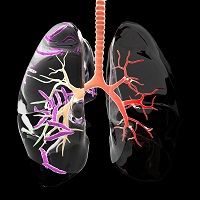Article
Wide-scale Access to Care Key in Eliminating Tuberculosis
Author(s):
While there have been great strides taken in combating multidrug-resistant tuberculosis (MDR-TB), World Health Organization (WHO) researchers suggested wider access to care is integral in eradicating the disease.

While there have been great strides taken in combating multidrug-resistant tuberculosis (MDR-TB), World Health Organization (WHO) researchers suggested wider access to care is integral in eradicating the disease.
Despite isoniazid and rifampicin resistance occurring in only 5.7% of TB cases, the investigators claimed in the European Respiratory Journal that these incidents both jeopardize the status of global TB control efforts and are expensive to manage and treat. Furthermore, they estimated that of the 1.3 million mortalities linked to TB in 2012, about ∼170 000, or 13% of them were believed to be instances of MDR-TB.
“MDR-TB treatment remains arduous and unsatisfactory: whereas 87% of all newly notified TB patients reported to WHO complete their medication successfully, only about one half of MDR-TB cases do so and the likelihood of success diminishes with progressive resistance beyond MDR-TB,” the authors wrote.
Analyzing the data of 30 countries and 280,000 MDR-TB cases, to better understand worldwide protocol, researchers studied the availability of drug-susceptibility testing (DST), coverage of common TB medications, enrollments on MDR-TB treatment, and MDR-TB treatments’ success rates.
In an effort to treat and cure TB patients living in the most at-risk regions, the authors determined the 30 countries experienced an average of 14% MDR-TB cases, with a 53% overall success rate in treating the condition. Alarmingly, the investigators reported about half of the countries observed had an increase of 50 %or more of MDR-TB cases from 2011 to 2012.
From their findings, the researchers pressed for measures that will improve the documentation, recording and detection of TB. Most importantly, they recommended launching measures which will prevent and control the spread of the disease. For middle-income countries, such as China and India, where there is access to TB drugs is not an issue, they urged for protocol that will encourage rational use.
“The development of new drugs and shorter regimens are expected to improve the likelihood of curing MDR-TB patients, including in particular those infected with strains that have additional drug resistance,” the writers penned.


